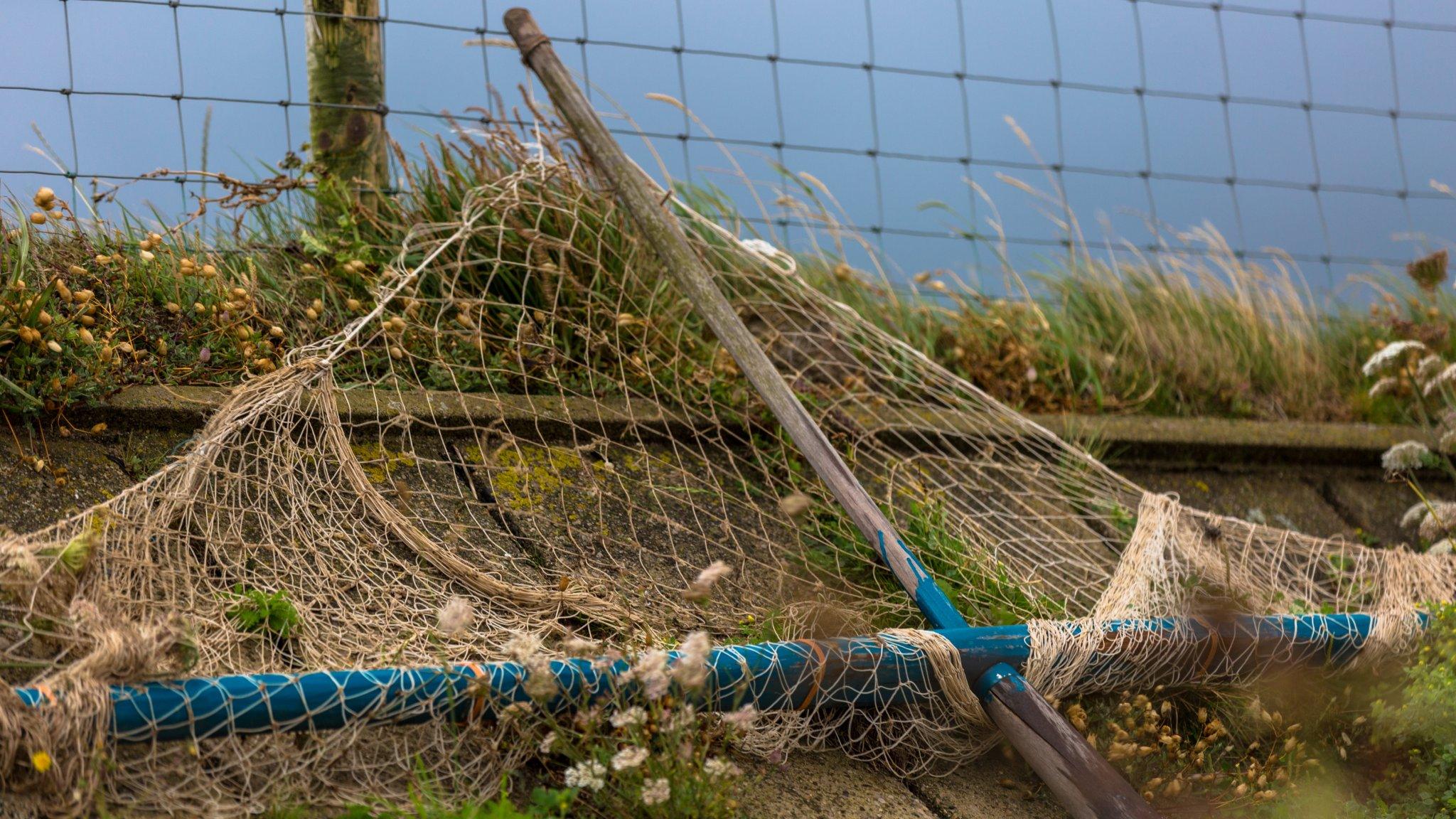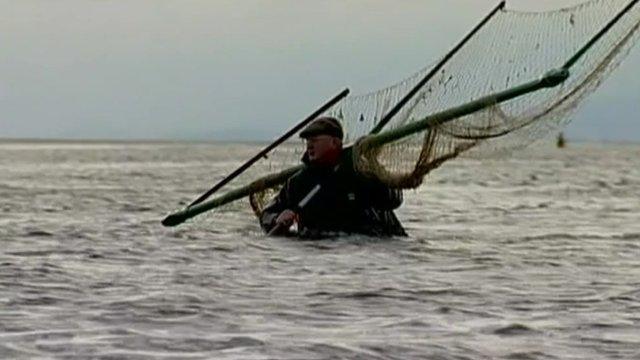Mixed response to salmon regulations
- Published

Haaf netters could be involved in a scientific project after the regulations are introduced
MSPs have given widely differing views of the impact in south west Scotland of new wild salmon stock protection rules.
From 1 April, there will be a three-year ban on killing fish outside estuary limits and strict controls on numbers in inland waters.
The SNP's Joan McAlpine hailed a "reprieve" for haaf netting methods.
However, Labour's Elaine Murray called it a "guesswork decision" while Conservative Alex Fergusson criticised the failure to delay the regulations.
Concerns had previously been raised about the impact of the controls on the historic tradition of haaf netting on the Solway Firth which dates back to Viking times.
Ms McAlpine claimed the regulations recognised the "unique cultural heritage" of the pursuit.
She said Scottish government officials would work on a scientific project which would allow some salmon to be caught.
"Nobody knows these stocks better than the haaf netters who have been working the Solway for generations," she said.
"So they are ideally placed to participate in a project gathering evidence about fish numbers and other conservation material."
She said the details of the plans had still to be revealed but she would be pressing for an early meeting with fishermen.
Ms Murray said the regulations threatened the future of angling clubs as well as haaf-netting and related tourism.
'Belated studies'
"Haaf netters and anglers across Dumfriesshire will find it extremely difficult to forgive or forget this disastrous order which has been pushed through by the Scottish government," she said.
"What makes things worse is that there has been simply no proper scientific evidence given by the government to back up their decision to introduce a blanket ban on salmon taking in our region."
She added that despite the offer of "belated scientific studies" there would be no direct compensation to counter the loss of earnings.
"The ban will be felt in every part of the region, as fishing tourism will likely fall, something which is absolutely crucial for rural economies like ours," she said.
Mr Fergusson tabled a motion to annul the measures but it was voted down.
"It is clear that many stakeholders feel that the scientific basis for these measures is seriously unsound and that the measures are being pushed in order to be seen to be 'doing something'," he said.
"My motion to annul the measures was simply designed to delay conservation measures being introduced in order to give the Scottish government time to bring forward a more robust scientific basis for them in a way that would ensure the buy-in of all stakeholders - something that is far from universal at present."
A Scottish government spokeswoman said it was aware of the "cultural importance" of haaf netting and the "poor conservation status" assessed in the area meant it could continue on a "catch and release" basis.
She said Rural Affairs Secretary Richard Lochhead had made clear they were looking to widen their science focus to include more specific work on the impact on such "cultural activities".
"Marine Scotland is keen to undertake further scientific work on salmon catches that involves the continuation of existing activities to a degree and we are keen to involve the haaf netters in that programme," she added.
- Published21 January 2016

- Published8 April 2015
